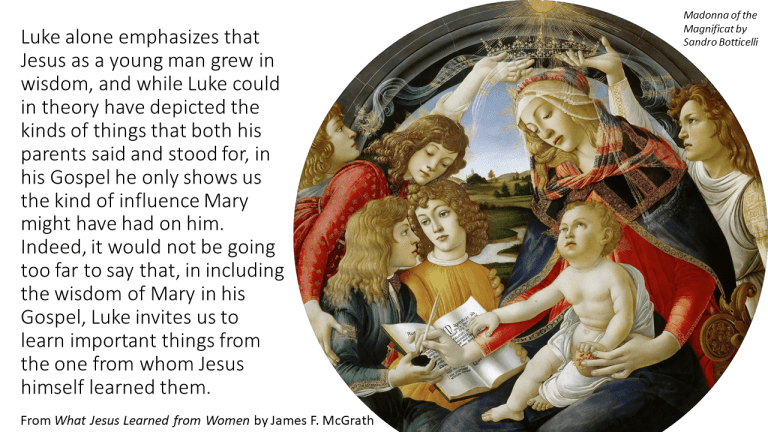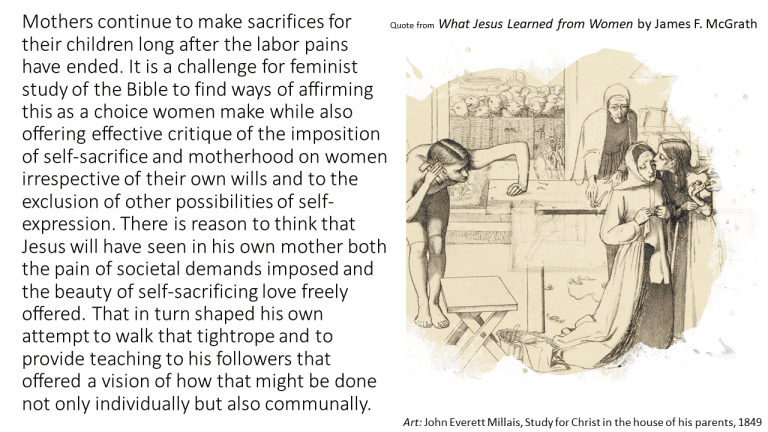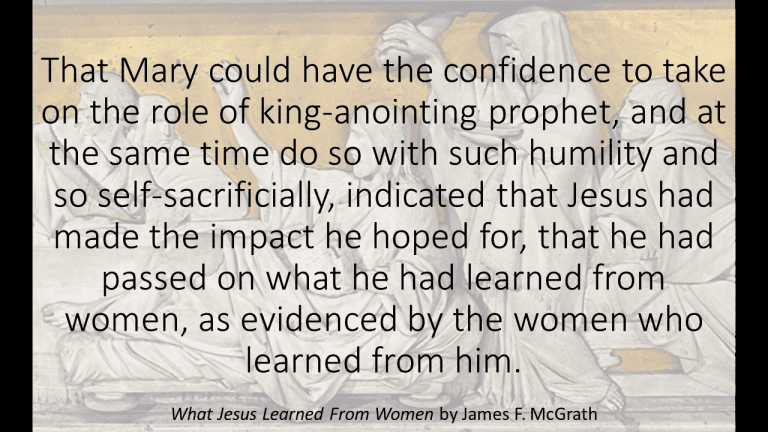On International Women’s Day, my wife encouraged me to share at least one excerpt from the book that I am working on, What Jesus Learned From Women. I tried making several memes, with several different quotes from the drafts of chapters. One of them I shared on social media. All of them are included here, as a glimpse of some of the things I’ll say. Clearly I’m not paying enough attention to making sure that I say things that are brief, quotable, and easy to turn into memes…



As I’ve worked on this book, I’ve come across so many fascinating and neglected works about New Testament women, often by women. To share one particularly striking instance, Harriet Beecher Stowe, best known as the author of Uncle Tom’s Cabin, also wrote a collection of poems, essays, and other texts with the title Woman in Sacred History: A Series of Sketches Drawn from Scriptural, Historical, and Legendary Sources. You can read the whole thing online courtesy of Google Books:
Also relevant to this are Bob Cornwall’s review of the book Consider the Women and John Squires’ recent posts about St. Photini, aka the Samaritan woman at the well:
The Pharisee of Jerusalem and the woman of Samaria (John 3 and 4; Lent 2–3A)
There is also a new Bible Odyssey article on the Syrophoenician woman by Claudia Setzer. If you’ve read the new article that’s out on the Syrophoenician woman and Jesus that Mike Bird blogged about, what are your thoughts on it? I haven’t done so yet.
There’s also a lot that is of interest related to New Testament women that falls beyond the scope of my book. Once again I’m struck by how much historical fiction there is not only related to the New Testament, but by New Testament scholars. For instance, Here are reviews of the recent novels by Paula Gooder and Ben Witherington.
Book Review: Ben Witherington, Priscilla: The Life of an Early Christian
A Recent Review of Priscilla: An Early Christian Life by Kelly Matthews
Of related interest:
On the subject of novel-writing, my Butler University colleague Bryan Furuness wrote:
Here’s a weird disconnect. If you tell people that it takes ten years of devoted work to reach mastery of a skill—not greatness, but mere mastery—they will nod and say, Right, that makes sense. But if you tell them that means it could very well take them ten years or more to write a novel, no matter how good their idea is . . . well, you can see the despair on their face.
But the thing is, you’re allowed to enjoy those ten years (or however long it takes). Actually, you better enjoy it. If you find that you don’t actually like writing all that much—if you’d rather be a person with a book than a person who writes—hit the eject button early and save yourself a ton of suffering.


















